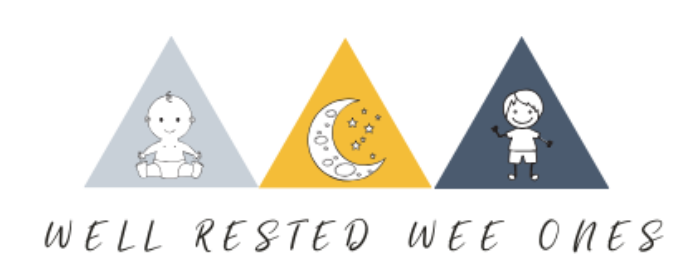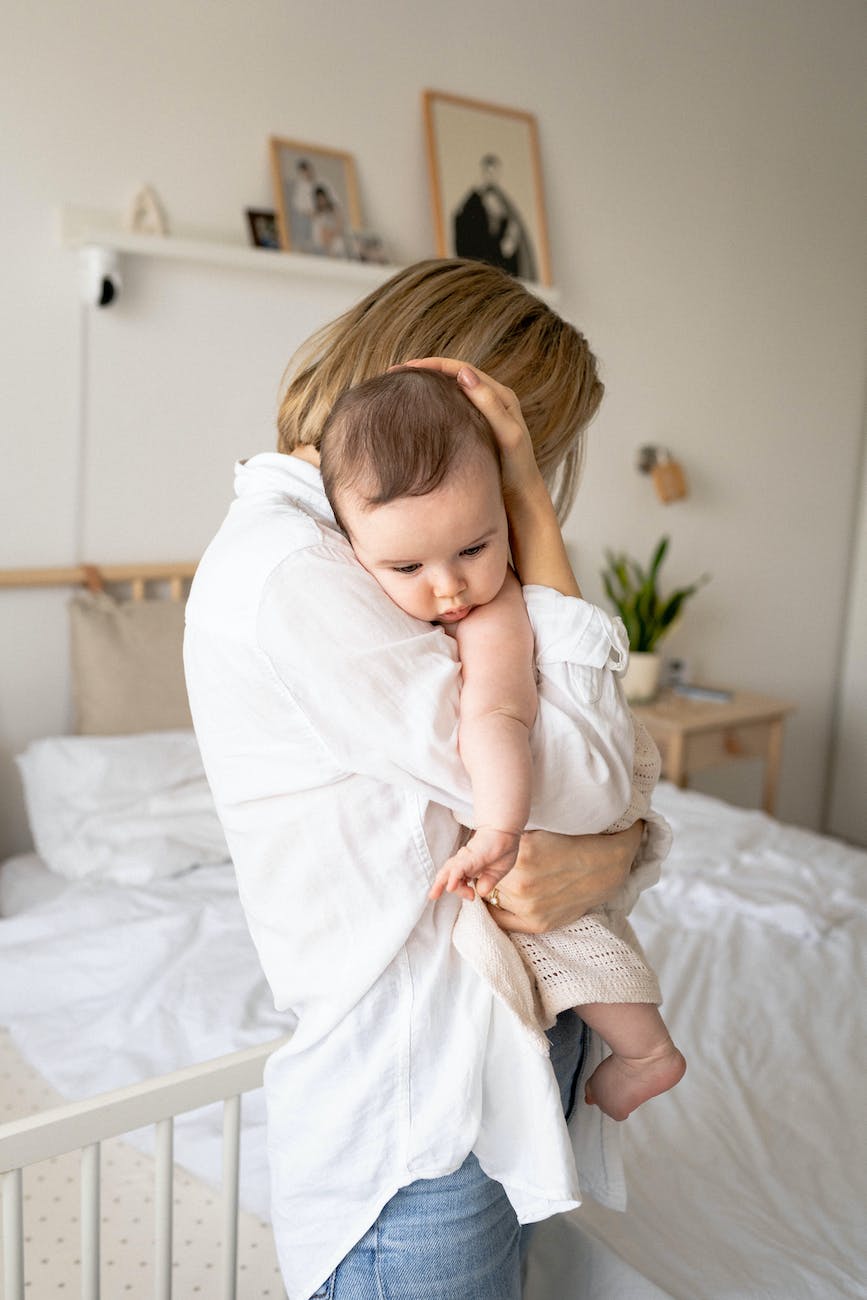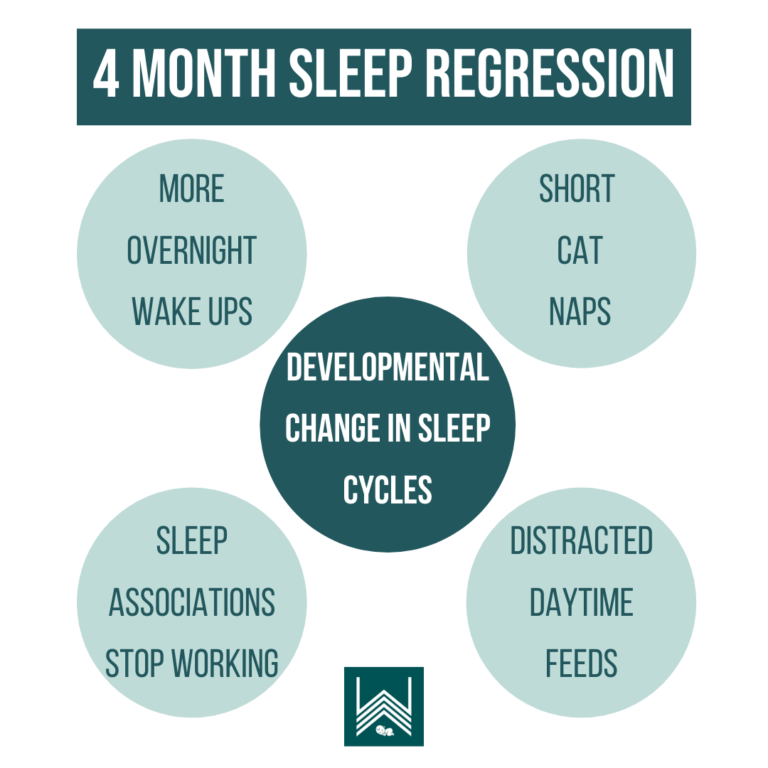Contact naps: Tips and how to stop contact napping
Ever snuggled up with your baby for nap time? Held them close until they drifted off? That’s what we call contact naps – when your baby dozes off against your body or in a carrier while you’re on the go.
Understanding Sleep: A Vital Pillar of Childhood Development
Sleep is fundamental for your child’s growth, cognitive development, and emotional well-being. It’s not just about the quantity or number of hours of sleep but the quality of rest that determines how rejuvenated they feel.
As a parent, you know the value of a good night’s sleep, both for your child’s well-being and your sanity. But finding the right solution can be overwhelming amidst the sea of advice and methods out there.
When is a contact nap beneficial
Contact naps can be especially beneficial in the first few months with your newborn when naps are unpredictable and short naps are common!
Contact naps are also helpful when your baby:
- Overtired-Try a few contact naps over the course of 2-3 days to help break the overtired cycle
- For a nap on the go-Try to babywear instead of the stroller
- When juggling a toddler and a baby-If your toddler has a morning or afternoon activity bring your wrap or carrier
- The last nap of the day is usually the hardest one! A contact nap or carrier nap can help bridge the gap to bedtime instead of a crib nap
- Help get longer naps with your newborn
My newborn to 3 month guides are here to help you establish healthy sleep and feeding foundations from day one! Tips to help with crib and bassinet sleep and hands on soothing ladders to get you there!
when does contact sleep become a problem?
Contact sleep can become troublesome if it’s the ONLY way your baby knows how to sleep. The need to sleep is biological, but the way we sleep is learned.
Meaning if your baby is exposed to the crib or bassinet from an early age their brain will associate it as a place where they sleep.
On the other hand, if your baby has only had contact naps from day one or been fed or held to sleep for the majority of sleep their brain will start to associate that with how they sleep.
They will look for this same parental led sleep association to initiate sleep whether it’s at bedtime, overnight, or nap time. This means you have to be available to hold them EVERY time or Mom may be the only one that can feed baby to sleep EVERY time.
In the early days of frequent night wakes and short naps contact sleep or feeding to sleep may seem like a good short-term solution, but many parents come to a time when they realize it’s not sustainable to do for every sleep long term.
Many parents also encounter a time when their baby does not get as restful sleep as they once did with contact sleeping. They may be restless, move around a lot, or take longer to fall asleep. This affects both the quantity and quality of sleep.
Or there may come a time when you as a parent are not available to provide contact sleep all the time anymore. This is completely normal and OK! Your baby can make the transition to independent crib sleep!
If contact naps feel like the only way your little one gets some shut-eye, worry not! I offer fully customizable and emotionally-connected courses and 1:1 sleep coaching support from newborn to age 4.
transitioning away from contact sleep
Wondering when your baby might outgrow contact naps? It varies for each child. While some babies naturally transition to independent sleep in cribs, others remain fond of the close snuggles. Steps to Shift Away from Contact Naps
Prepare the sleep environment
- Ensure the room is conducive to sleep:
- Check for safety standards.
- The crib should be empty with a fitted sheet for babies under 12 months
- Darken the room. I recommend the Sleepout shade for blackout curtains. Code: wellrested for 10% off
- Use a sound machine for comforting white noise.
Follow age appropriate wake windows
- Understand your baby’s sleep cues and establish age-appropriate wake windows for smoother naps.
- Work on an eat, play, sleep routine as early as possible
- You want your baby fully awake and alert while feeding followed by play time to practice skills before the next nap
- We provide 4-24 month nap schedule guides in the Well Rested course and customized schedules with 1:1 coaching plans
Practice, practice, practice
- Changing routines takes time, practice, and patience
- Your baby may accept a nap in the crib easily some days and protest others
- Expose your baby to the crib while awake-Try this while you are in the room to promote a positive environment
- Gradually reduce the amount of rocking to one lullaby to soothe your baby, but not to sleep before laying in the crib awake
- Even a short nap in the crib is a win when you first start!
Work on overnight sleep first
- Strengthen nighttime sleep habits to aid in a smoother nap transition.
- Start at bedtime when your baby’s sleep drive is highest
- Feed your baby at the beginning of the bedtime routine and separate it with a book, song, or prayer
- Try laying your baby down awake at bedtime followed by parental reassurance if they protest the change
- Remember learning a new skill and breaking habits takes time, practice, and consistency!
ready to shift from contact sleep to crib sleep?
Looking for a balance between contact naps and independent naps? Practice makes progress with independent sleep.
Independent sleep is a learned skill! It takes lots of time, practice, and patience. The golden period to work on independent sleep is around 3-4 months of age, but IT IS NEVER TOO LATE!
I always recommend working on independent sleep at bedtime and overnight before naps. This will help them get good quality deep and restorative sleep overnight which will then lead to better feeds and purposeful awake time during the day. Naps tend to improve one at a time, so take it step by step and give yourself grace during the process!
We have sleep resources to help your family
If you’re looking for guidance in easing your baby away from contact naps and you’re ready to make a change to crib sleep…I have a class for you! The 4-24 Month Well Rested Collection will walk you step-by-step through a completely customizable sleep training experience. In just a few weeks, your baby will be falling asleep independently, getting 11-12 hours of independent night sleep, AND you’ll have a plan to navigate any future regressions or bumps in your journey. I’ll also help you set up a daytime routine and nap schedule that fits your family’s lifestyle and values. And you’ll get age-specific guidance to meet your baby right where he or she is developmentally at every stage from now until your baby turns 2.
We also offer 1:1 personalized sleep coaching to families including newborn support and sleep training plans starting at 3 months of age up to 4 years!
We have custom sleep plans that can help your baby sleep through the night, fall asleep independently, and take longer naps!
Please Share this Post with a Mama!





